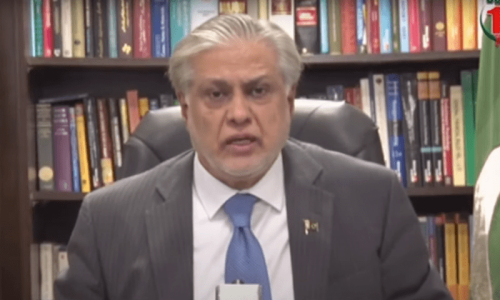ISLAMABAD: The Centre has asked the Sindh and Balochistan governments to abolish the infrastructure development cess (IDC) on petroleum products to avoid price distortion among the provinces and unnecessary financial burden on the oil industry and the consumers at large.
In their separate communications to the Sindh government, Oil and Gas Regulatory Authority (Ogra) chairman Masroor Khan and acting secretary petroleum Muhammad Mahmood have called for the exemption of petroleum products from the imposition of IDC.
Mr Mahmood wrote to Chief Secretary Sindh Sohail Rajput that the oil industry had challenged the IDC in superior courts which had issued a stay order with the condition for the industry to submit 100pc bank guarantees equal to the value of cess at the time of customs clearance. The government “regulates the price of petroleum products as per approved pricing formula by keeping petroleum products prices uniform across the country. In the presence of the IDC, uniform oil prices will be distorted across the country and the burden on the consumer will also increase”, he said, adding that additionally the bank guarantee equal to the value of cess was burdening the OMCs and will cause serious cash flow issue which may have adverse impact on the supply chain.
He demanded that the provincial government “exempt import and export of all petroleum products from the IDC so that uniformity of prices could be maintained across the country”. The Sindh Excise Department has formally implemented the requirement of submitting a bank guarantee equivalent to 100pc of the IDC value at the time of goods declaration with effect from July 21, 2023.
Sindh and Balochistan govts have been asked to take this step to ensure price uniformity across the country
Separately, the Ogra chairman took up the matter with the Sindh Chief Minister Murad Ali Shah for immediate intervention given the ‘issue of vital significance affecting the national oil supply chain and consequently the people of Pakistan including the residents of the province of Sindh.’
He sensitised the chief minister that IDC had been imposed by the Sindh government on the import of petroleum products to boost revenue sources and invest in infrastructure development but the imposition of this cess had led to significant challenges for the oil industry.
The Ogra chief said the petroleum product prices (petrol and diesel) were uniform across the country and imposition of IDC will distort the prices and increase the burden on the consumers across the country.
In addition, “the oil marketing companies are being asked to deposit bank guarantees equivalent to the IDC for each cargo, thereby straining the working capital and credit limits with the banks. Such a situation is untenable given the current cost of financing (Kibor:23.42pc) and has hampered the oil industry’s ability to import petrol and diesel and clear the imported molecules”, he said.
Based on these challenges, he requested the chief minister “to reconsider the imposition of the IDC on POL products” and follow the precedent set by the Punjab Revenue Authority (PRA) and Khyber Pakhtunkhwa government as they had previously imposed IDC but later issued exemptions for POL products recognising that their prices are regulated by the centre.
“A similar measure in Sindh under Section 6 of the Sindh Development and Maintenance of Infrastructure Cess ACT, 2017, would undoubtedly ease the financial pressure on the industry, thus ensuring a more stable supply chain for essential POL products”, he demanded, adding that the regulator understood the challenges involved in making such decisions but such a waiver or adjustment would be in the best interest of the public, the oil industry, and the government.
Bank guarantee withdrawal
Separately, the oil industry has sought ‘urgent intervention’ of Prime Minister Shehbaz Sharif “to issue an executive order to the Sindh government for immediate withdrawal of bank guarantee requirement on POL products along with the advice to FBR to allow customs clearance of all import parcels without inclusion of IDC, so that adequate stocks can be maintained at upcountry locations”.
In letters to the finance minister and minister of state for petroleum, the Oil Companies Advisory Council (OCAC) demanded that the said exemption so granted by the prime minister “be kept in force until such time that the issue of withdrawal of IDC by Sindh and Baluchistan governments is raised and settled at the Council of Common Interests (CCI)”.
The OCAC, an association of over three dozen oil companies and refineries said the Sindh and Balochistan governments had been imposing IDC since 1994. The IDC law had been revised various times since 1994 and the latest revision was made applicable in 2017 through the Sindh Development and Maintenance of Infrastructure Cess Act 2017.
Published in Dawn, August 3rd, 2023














































Dear visitor, the comments section is undergoing an overhaul and will return soon.